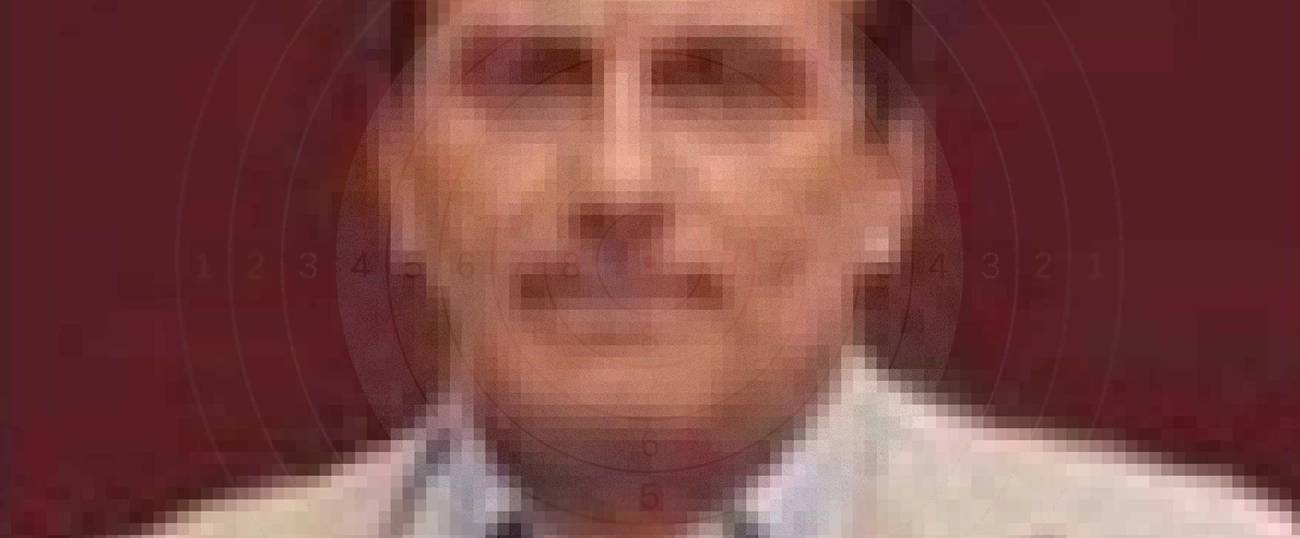New BBC Report Sheds Light on Ukrainian Mafia’s London-Based Money Laundering
The allegedly dead “Don of Odessa,” Aleksandr Angert, is making headlines again




Earlier today, the BBC published the results of its long awaited investigation into London property holdings of a prominent Odessa based Ukrainian mafia clan. The article boils down the results of the BBC’s investigative television show “Panorama,” which will be airing its documentary investigation tonight.
The bombshell investigation alleges that members of the clan and their immediate families engaged in money laundering in order to purchase high-end real estate properties in the middle of London. Deliciously , one of the homes is in an apartment building once occupied by T.S. Eliot. The allegations, while well known to experts on Ukrainian and Russian organized crime and professional Ukraine watchers, flesh out in an easy to comprehend popular manner the revelations of the so-called “Paradise Papers”, the November 2017 data hack of more than 13 million financial documents that were leaked to the German newspaper Süddeutsche Zeitung. This investigation also focuses heavily on evidence provided to the Organized Crime and Corruption Reporting Project by Italian mafia investigators who were unable to open a case as none of the crimes were committed on Italian territory.
Last Autumn, as I reported for Tablet, the Odessa and Ukrainian criminal underworlds were rocked by the succession struggle within Ukrainian media hierarchies that followed the alleged death of the “Don of Odessa,” Aleksandr Angert. Whether the mobster, popularly known as “the Angel,” has actually succumbed to what was rumored to be a long term cancer remains a contested issue, with at least one former Ukrainian cabinet minister claiming to have observed the supposedly dead mafioso walking the streets of London’s upscale neighborhood of Kensington. Other sources allege that the head of one of the most powerful organized crime syndicates in Europe has already been secretly buried in a secret ceremony in Italy.
The BBC investigation reveals that Angert’s filmmaker daughter is the registered owner of three houses worth millions of British pounds. The intricate offshore shell company structures which were allegedly used to buy up London real estate were set up by a London lawyer named Alexander Popivker, who, the article reveals, is married to Angert’s sister. Odessa mayor Gennadiy Truhanov, long suspected of mafia ties, was revealed by Italian police investigators to be the member of the gang who “trained members of the gang in hand-to-hand combat and sniper shooting with high precision weapons.”
The report comes at a particularly difficult time for the mayor, who was briefly arrested in mid-February in the Kyiv airport upon his return to Ukraine from a three-month-long exile in Greece on suspicion of embezzling state property by misappropriating city funds.
As I wrote for Tablet last month, Truhanov’s prompt release on bail caused tremendous amounts of political tension in Ukraine:
Mayor Turkhanov had not appeared at work in city Hall for more than two months, hiding out abroad, allegedly while a deal for his political future was being worked out with the government. As Odessa is no longer under separatist threat and [Since deported former Georgian president and Odessa governor] Saakashvili was no longer gathering political forces to use the region as a base for taking over Ukrainian politics, Turkhanov is not much less useful to Kyiv than he had been in 2014 or 2015. A day after being detained at the airport he was released by the judge, with outraged ultra right wing nationalists and the Kyiv police engaging in massive brawl outside of the court house.
Odessa is infamous for its raucous, irreverent, and occasionally fixed elections, some of which I have observed as an international electoral observer. A member of the Ukrainian parliament who requested anonymity recently opined to me that President Petro Poroshenko’s presidential administration was hedging its bets in its relation to the mayor, in the hopes that he could be useful in delivering substantial numbers of votes in the upcoming 2019 presidential elections. The BBC documentary will likely put more international pressure on the acting Ukrainian authorities to revisit their understanding with the mayor.
Vladislav Davidzon is Tablet’s European culture correspondent and a Ukrainian-American writer, translator, and critic. He is the Chief Editor of The Odessa Review and a Non-Resident Fellow at the Atlantic Council. He was born in Tashkent, Uzbekistan, and lives in Paris.